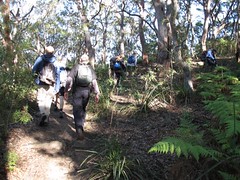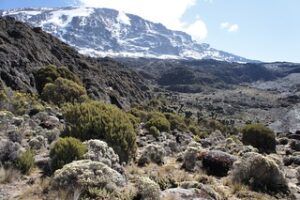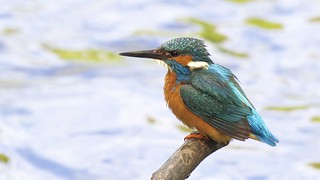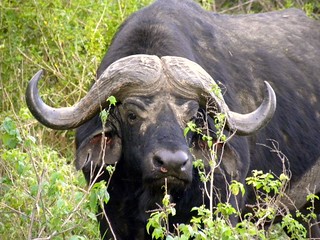Embarking on a journey to climb Mount Kilimanjaro is a thrilling and rewarding adventure but physically and mentally demanding that requires careful preparation. Pre Kilimanjaro training is necessary to build your resilience and endurance to avoid the disappointment on the D-day. In this guide, we will explore the essential training you must take before embarking on this journey to build your fitness and endurance such that you can be able to go through the whole exercise of reaching the top of the highest peak on the African continent.
Assess Current Fitness Level-rock climbing or glacier travel
Before going for any training class, first find out what are your fitness level in regard to cardiovascular endurance, strength, flexibility, and balance. This will help you to choose which class you should be taking on.
Set Clear Goals
Determine specific objectives for your climb such as summiting a certain peak, completing a multi-day trek or improving overall endurance and strength. This will enable you to know which area of your body need to be improved before going for the grateful adventure of your life.
Consult a Professional
After clearly setting out your, consider consulting a professional physical trainer to draw out a plan for you that fits into you set goals and objectives.
Gradual Progression-rock climbing or glacier travel
Give yourself a long training scheduled that fit your current level of fitness. Fitness training are gradual and once rushed, they can result into serious injury therefore you need to give yourself time to allow your body to slowly adjust to the increasing pressure that applied to it.
Cardiovascular Endurance-Pre Kilimanjaro training
Cardio training is different from other muscular trainings. Trainings like running, bicycling and swimming are meant to improve your cardiovascular endurance. Do them at least three times a week to ensure a successful climbing without any heart challenges.
Strength Training-rock climbing or glacier travel
Strength building is also necessary. These training should focus on body weight and muscle strengthening. Trainings like push up are advised to be taken at least three times a week to build up your body
Flexibility and Mobility
Improve flexibility and mobility to prevent injury and enhance performance. Incorporate dynamic stretches, yoga, and mobility drills into your routine to increase range of motion and joint stability. Dedicate time to stretching and mobility exercises at least 2-3 times per week, focusing on tight areas such as the hips, hamstrings, shoulders, and ankles.
Endurance Training-rock climbing or glacier travel
Gradually increase the duration and intensity of your workouts to build endurance for long climbs or treks. Incorporate longer hikes or backpacking trips into your training regimen, gradually increasing distance and elevation gain. Include interval training and hill repeats to simulate the varied terrain and intensity of outdoor climbs.
Technical Skills Practice-Pre Kilimanjaro training
Dedicate time to practicing rock climbing and glacier travel under the guidance of a qualified instructor. Familiarize yourself with equipment such as ropes, harnesses, and crampons, and practice proper techniques for belaying, rappelling, and self-arrest.
Nutrition and Hydration
Maintain a balanced diet rich in carbohydrates, protein, healthy fats, fruits, and vegetables to fuel your training and recovery. Stay hydrated by drinking plenty of water before, during, and after workouts, and consider electrolyte replacement for prolonged or intense training sessions.
Rest and Recovery-Pre Kilimanjaro training
Prioritize rest and recovery to allow your body to adapt to the demands of training and reduce the risk of overuse injuries. Aim for 1-2 rest days per week, and incorporate active recovery activities such as yoga, swimming, or gentle hiking on rest days. Get adequate sleep each night to support physical and mental recovery.
Mental Preparation
Developmental resilience and confidence through visualization, positive self-talk, and goal setting. Practice stress management techniques such as deep breathing, meditation, or mindfulness to stay calm and focused during challenging climbs. Set realistic expectations and be prepared to adapt to changing weather conditions, terrain, and unforeseen challenges during your climb.
Gear and Equipment-Pre Kilimanjaro training
Invest in high-quality gear and equipment suited to the specific demands of your climb, including appropriate footwear, clothing layers, backpack, navigation tools, and safety gear. Test and familiarize yourself with your gear before the climb to ensure proper fit and function.
Simulated Climbing-Pre Kilimanjaro training
If possible, simulate climbing conditions and terrain during training sessions to build confidence and familiarity with outdoor environments. Utilize climbing gyms, indoor rock walls or outdoor bouldering areas to practice climbing techniques and build strength and endurance.
Monitor Progress-Pre Kilimanjaro training
Keep track of your training progress, including workouts completed, distances hiked, elevations gained, and improvements in strength and endurance gained. Adjust your training plan as needed based on feedback from your body, performance metrics and guidance from fitness professionals.
Safety First-Pre Kilimanjaro training
Prioritize safety at all times during training and climbing activities. Be aware of potential hazards such as inclement weather, unstable terrain, wildlife encounters and altitude sickness, also take appropriate precautions to mitigate risks. Always climb with a knowledgeable partner or guide and familiarize yourself with emergency procedures and first aid techniques.
Enjoy the Journey-Pre Kilimanjaro training
Embrace the journey of training for and embarking on your climb, and savor the experiences, challenges, and triumphs along the way. Stay motivated by focusing on the sense of accomplishment and personal growth that comes from pushing your limits and exploring the great outdoors.
Conclusion-Pre Kilimanjaro training
preparing for a Mount Kilimanjaro climb requires a comprehensive training regimen that addresses the physical, mental, and logistical aspects of the expedition. By following a structured training program focused on cardiovascular conditioning, strength training, altitude acclimatization, and mental preparation, climbers can enhance their fitness levels, build resilience, and optimize their chances of success on the mountain.
Additionally, incorporating practical skills such as hiking with a loaded pack. Practicing proper gear use and familiarizing oneself with high-altitude environments can further bolster climbers’ readiness for the challenges ahead. With dedication, commitment, and proper preparation, climbers can embark on their Kilimanjaro expedition with confidence. Knowing that they have the skills, fitness, and resilience needed to conquer Africa’s tallest peak and make lifelong memories along the way.







